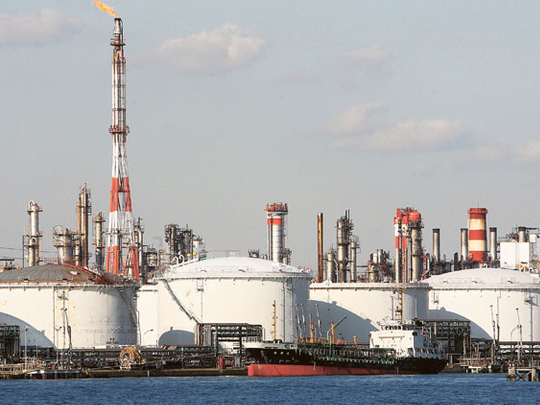
Tokyo: Exxon Mobil agreed to sell its Japanese business to local partner TonenGeneral Sekiyu KK in a $3.9 billion (Dh14.3 billion) deal as the world's largest energy company shifts focus to the higher returns from pumping oil and gas.
TonenGeneral will buy 99 per cent of ExxonMobil Yugen Kaisha, a Japanese unit that mainly engages in refining and retail sales, the Tokyo-based company said yesterday in a statement.
ExxonMobil will retain a 22 per cent stake in TonenGeneral, which will continue to have exclusive rights to use the Texas-based company's brands in Japan.
The sale comes after Japan decided in 2010 to require oil companies to modernise facilities or cut refining capacity.
While Japan's consumption is declining due to a shrinking population and greater use of hybrid and electric autos, the transaction also reflects Exxon Mobil CEO Rex Tillerson's strategy of focusing on oil exploration.
"ExxonMobil has continuously adapted its business model to meet the needs of Japanese society and its changing business environment," the US company said in a statement yesterday.
The deal, which Exxon Mobil called a "restructuring" of its Japan business into a single asset, does not involve the US company's liquified natural gas marketing and sales or its speciality chemicals operations in the country.
ExxonMobil will continue to assist TonenGeneral with crude oil and products acquisition, both companies said.
‘New alliance'
As TonenGeneral looks to craft a "new alliance" with ExxonMobil, the deal may also attract greater interest in the Japanese market, from rivals in the Middle East among others.
"Now what TonenGeneral needs to survive is a strategic partner," said Osamu Fujisawa, an independent energy economist in Tokyo.
"There are no Japanese refiners that can partner with Tonen. So, it should be someone from the Middle East."
Saudi Arabia's state oil company, the source of almost 31 per cent of Japan's crude imports during the first nine months of 2011, owns a 15 per cent stake in domestic refiner Showa Shell Sekiyu KK.
The Abu Dhabi government owns a 21 per cent stake in Japanese refiner Cosmo Oil Co.
Japan's fuel market changed in 2010 with a government directive to promote increased gasoline and gasoil production from residue, a cheaper way to extract fuel.
Residue-processing facilities such as coker units cost about 100 billion yen (Dh4.6 billion) to build, according to Credit Suisse Group AG.












